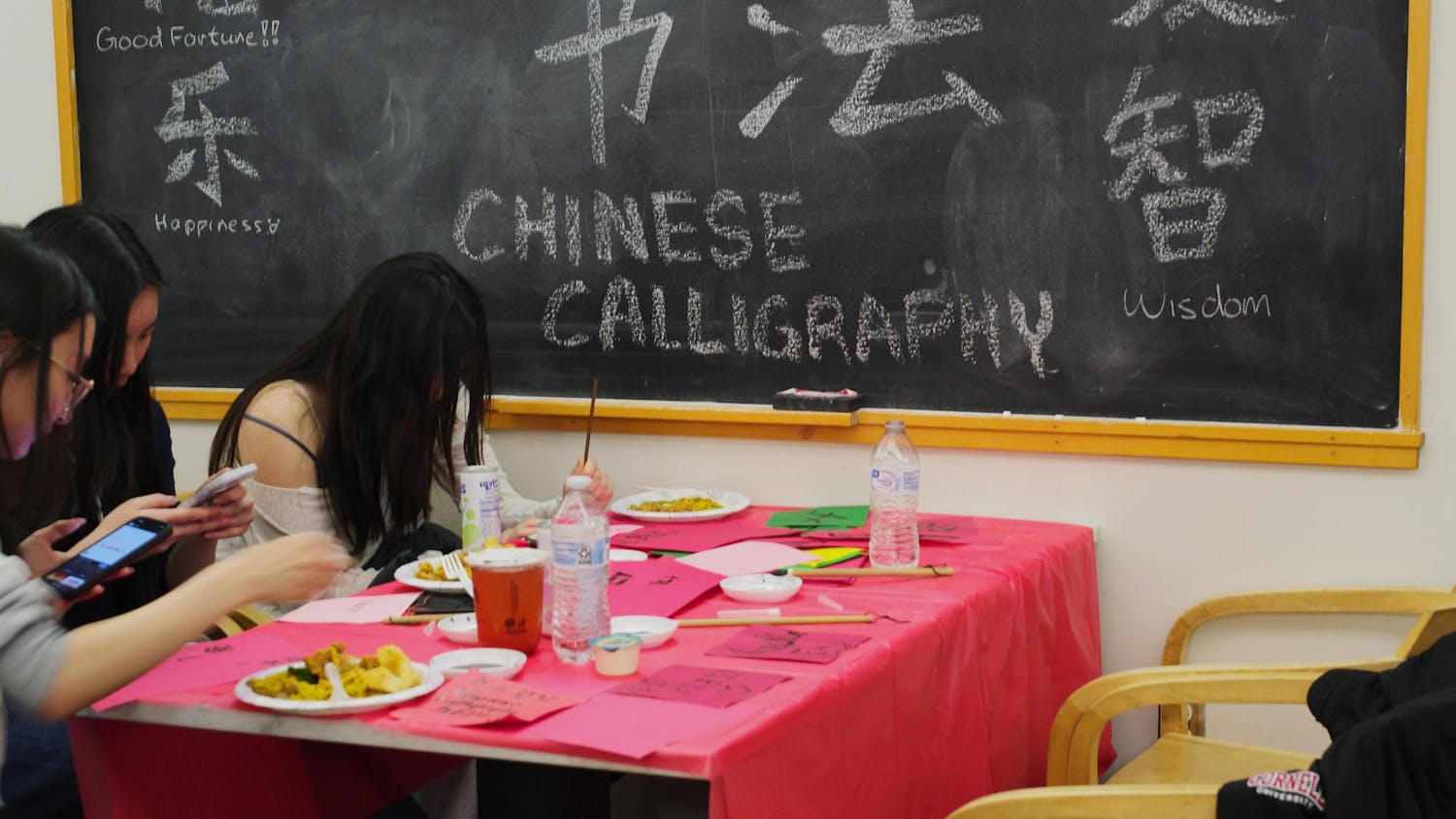Correction, May 14, 11:29 a.m.: A previous version of this article stated that the Dewey Decimal system currently uses outdated terminology to describe individuals of Asian descent; it no longer does. The article also initially misrepresented one of the teach-in panelists by misquoting them as having used the expression “white supremacy,” which they did not. The full quote has been added, and the article has been updated. The Sun regrets this error.
To create a space for people to learn about and discuss anti-Asian racism, Cornell hosted a virtual Teach-in on Confronting Anti-Asian Racism.
The teach-in was hosted from noon to 2 p.m. Friday with nearly 500 students, faculty and alumni in attendance. Speakers and panelists gave background information on Asian racism throughout history and spoke about their own experiences.
The event was planned following the Atlanta shooting and an increase in anti-Asian hate across America.
“It is intolerable that these communities have experienced acts of racism, violence and hatred. As a campus community, we denounce these vile acts and stand firmly with our Asian and Asian American friends and colleagues,” President Martha Pollack wrote in a statement reflecting on the Atlanta shooting.
Prof. Derek Chang, history, began the event by speaking about the connection between current anti-Asian racism and the historic oppression of Asians and Asian Americans.
Nancy Martinsen, Associate Dean of Students and Director of the Asian and Asian American Center, discussed cultural norms can sometimes create challenges for AAPI Cornellians while acclimating to the school’s climate.
For example, some Asian students may be more reluctant to challenge professors or participate in class, according to Martinsen. She suggested that professors should be more mindful about these potential difficulties in policies such as graded participation.
“The AAPI community tends to be very family centered,” Martinsen said. “Cornell tends to be a very competitive environment, which creates a very individualistic way of thinking — even the approach to academia is sometimes very individualistic.”
Avery August, vice provost for academic affairs, shared data from the Cornell PULSE Survey, which reported that many Asain undergraduate students, graduate students and faculty members feel isolated or disrespected.
“The responses of the surveys tell us that we really need to ask and try to get a deeper understanding of the experience here on the campus,” August said.
After hearing from the speakers, a panel of six Cornell faculty and students spoke about their thoughts on race and academia.
“As a librarian, I see the ways in which my profession has the capacity to confront bias and misinformation in ways we approach and teach information and digital literacy,” said Reanna Esmail, outreach and engagement librarian at Olin Library.
Esmail noted, however, that she also believes libraries should be held accountable for the “fraught history of being complicit in racism and in some cases upholding and disseminating racist ideas.”
“Libraries are predominantly white fields, and Cornell is no exception in this regard,” she continued.
Esmail also pointed to the Dewey Decimal System, the classification system used in most public libraries, and its previous usage of the terms “yellow races” and “Mongoloid races” to describe people of Asian descent. The Library of Congress classification system, the system used at Cornell, previously used the term "yellow peril" as a subject-head, and currently still uses "illegal aliens" to describe undocumented peoples, she added. Librarians, she said, are also disproportionately white, according to the American Library Association.
“In order to confront anti-Asian bias, we need to hold our institutions accountable and not hide these practices and histories, but instead reckon with them and advocate for changes,” Esmail said.
After panelists concluded their conversation, 200 participants stayed in break-out rooms to discuss what they learned during the event as well as to talk about their past experiences with anti-Asian racism.
Jeannie Yamazaki, ’21, mentioned that COVID restrictions and social distancing made her experience as an Asian American student during the pandemic even more isolating.
“I am sort of separated physically from the people I love; from my community,” Yamazaki said. “I'm also disconnected in a sense of bearing witness to the ever-present anti-Asian racism that is going on in our world.”
However, she voiced her mixed feelings about the connections that she’s strengthened as a result of the anti-Asian violence.
“What does it mean to recognize an experience because of violence?” Yamazaki asked. “What does it mean that my family is thinking about race because this happened? What does it mean that all 478 of us on this call right now are here, following an email and by those put together because of a mass murder?”
Christopher Berardino grad spoke about racist encounters he’s faced as a member of the AAPI community. He said in the past, he’s been called derogatory names and pulled over by a police officer for fitting a suspect’s description.
“I hope our experiences throughout this last year do not merely make us realize that anti-Asian racism exists,” Berardino said. “We as people of color are in a larger fight for equality for all peoples who are not yet seen in the eyes of America is fully human.”











